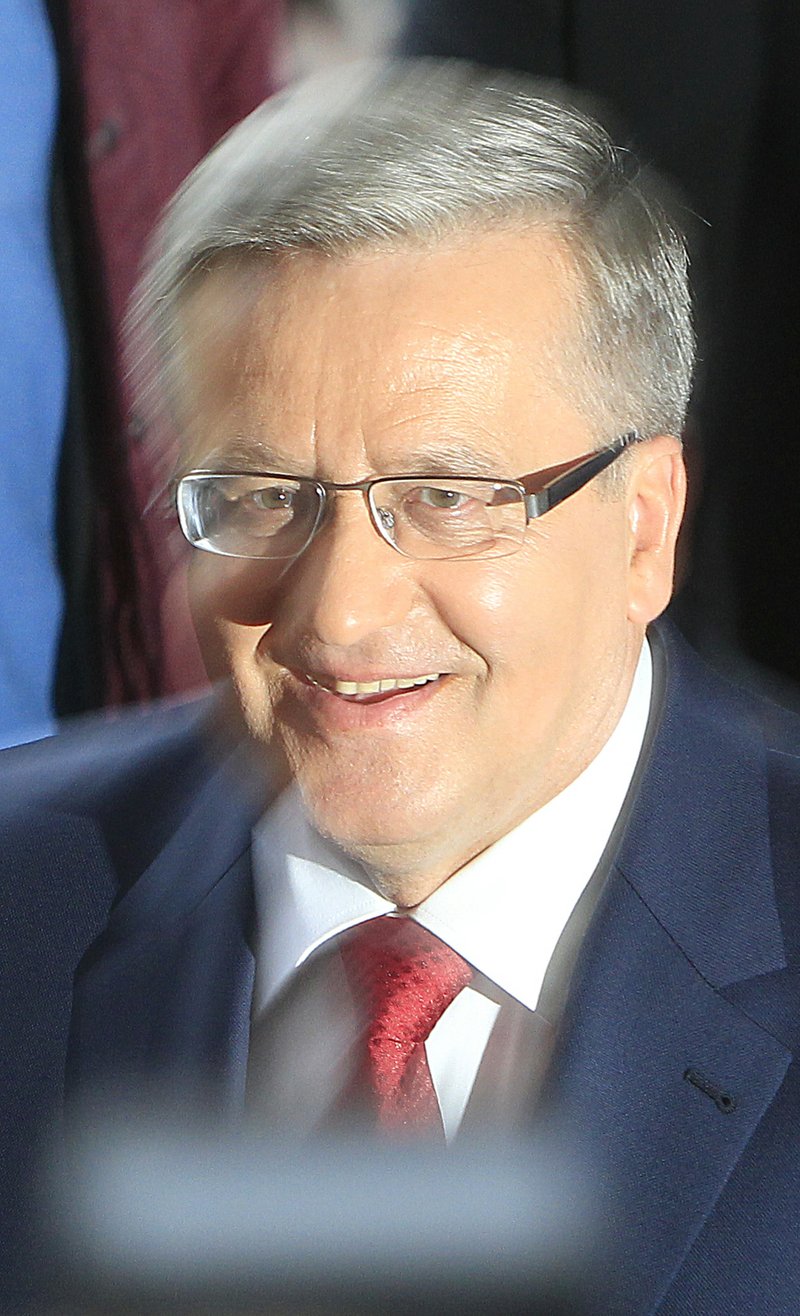WARSAW, Poland -- Polish President Bronislaw Komorowski conceded defeat in the presidential election Sunday after an exit poll showed him trailing Andrzej Duda, a previously little-known rightist politician.
Final, official results are expected to be released today.
"I congratulate my competitor Andrzej Duda and wish him a successful presidency," Komorowski said.
The mood was joyous at the election night gathering of Duda's Law and Justice party over what is apparently its first significant electoral victory in nearly a decade.
"We can change Poland," Duda, 43, told his supporters. He vowed an open presidency based on unity and said that it would take a lot of difficult work to fix the country's problems.
Polish presidents have fewer powers than prime ministers and their governments, but the president does represent the nation internationally and helps set a political and moral tone at home.
Duda's apparent victory has exposed a rising disillusionment with the long-ruling Civic Platform party, the pro-European party that Komorowski is closely tied to, ahead of the more important parliamentary elections this fall.
In his five years in office, the 62-year-old Komorowski has been popular and was expected to win re-election easily. But he narrowly lost in the first round of voting to Duda, a lawyer.
In eight years of rule, Civic Platform has overseen unprecedented economic growth that has helped the country raise its profile internationally, something seen in the election of the former Polish prime minister, Donald Tusk, as head of the European Union.
But the party has been hurt by corruption scandals, and many Poles are angry that the country's much-touted economic growth has not trickled down to many Poles, with low wages and job insecurity still motivating many to seek a better life abroad.
Most people "have not benefited from the economic change," Marcin Wolski, a well-known satirist, said at Law and Justice's election night gathering in Warsaw as he waited with other Duda supporters for the polls to close. "For some time now, Poland's politics have been stagnant. ... Poland needs change, and Duda is the sign of the change that Poland needs."
Wolski also praised the party's strong attachment to "Catholicism and traditional and historical values that matter to Poles."
Although both are conservative, the Civic Platform party has a more liberal stance on some issues such as in vitro fertilization and is more pro-European than Law and Justice, which has a nationalistic streak and has demanded more sovereignty from Brussels.
Duda had called for higher taxes on banks and large supermarket chains, which are mainly foreign-owned and wants Poland to retake control of the banks. He has also said he wants to lower the retirement age, which the ruling party raised in one of its least popular moves.
When Law and Justice last ran the government, from 2005-07, leaders took a sometimes combative stance toward the EU, Germany and Russia, straining ties with those major European powers.
A common sentiment among the Komorowski voters was that he wasn't a great president, but a safer bet for the country.
"I chose the lesser evil, the incumbent, because we know who he is," said Stefan Bialek, 22, after voting in a southern Warsaw district. "Duda is a man from nowhere and makes very costly promises, but does not say where he will find the money."
Information for this article was contributed by Vanessa Gera of The Associated Press.
A Section on 05/25/2015
